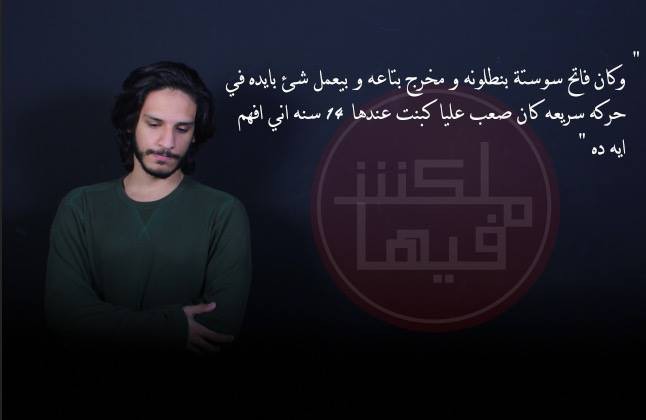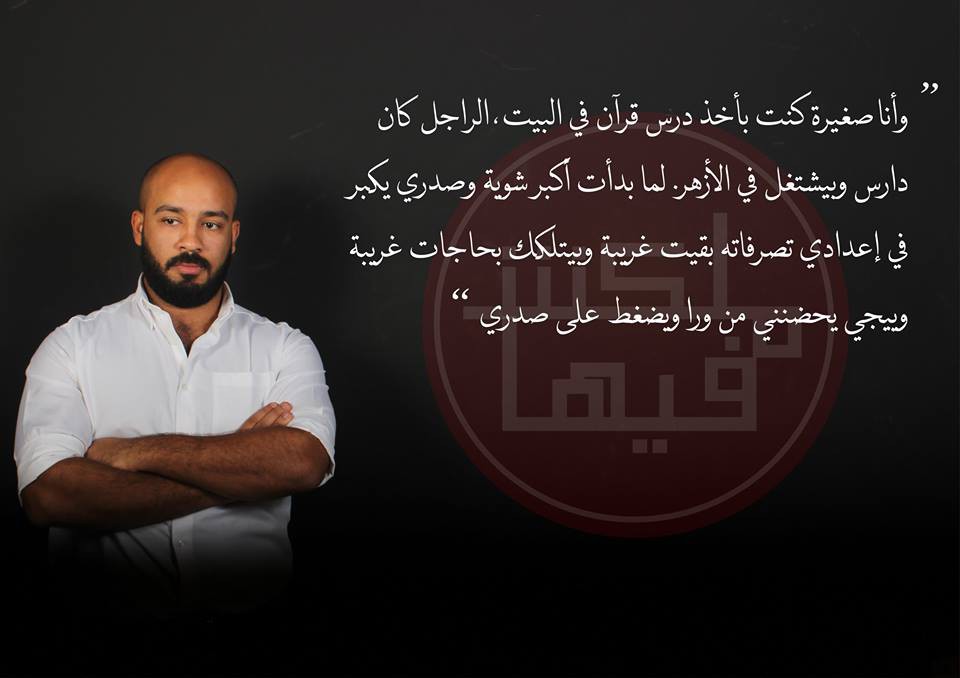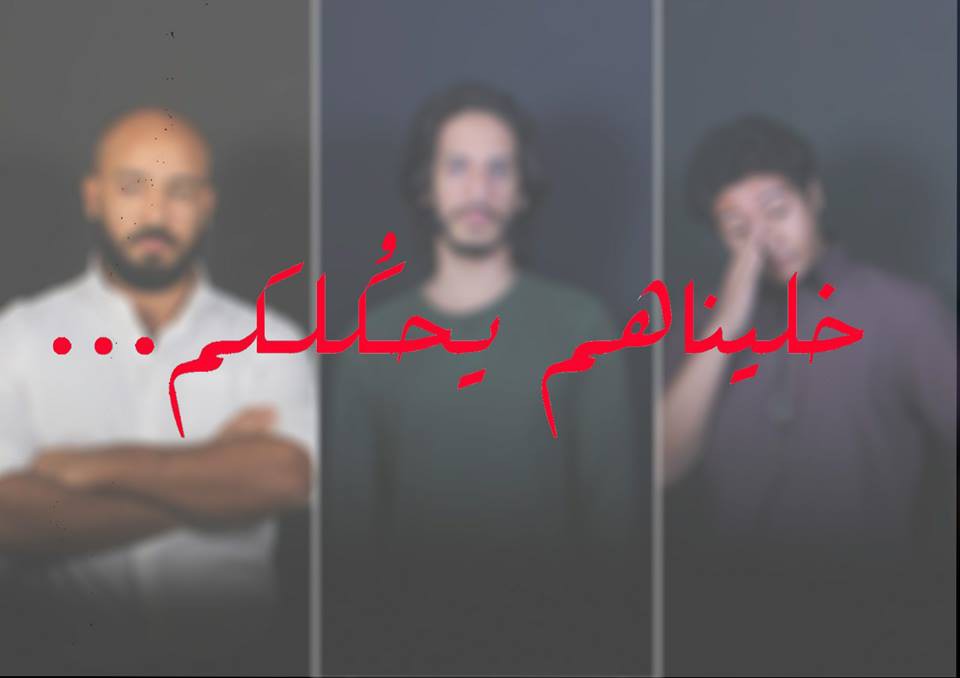Everyday women are harassed. Every now and then campaigns are launched, harassers are attacked, women are patted or blamed, but nothing changes. Maybe it is because we are forgetting a variable in the equation, a third party, the guy that is standing at the background of the crime, the guy that is filming or watching or merely existing. Allaa Emad, a design and film senior student in the American University in Cairo, zoomed in until there was nothing to see in the picture but him, but them: the passive men.
Allaa started the ‘Malaksh Feha’ campaign as her senior thesis project, bringing in male-volunteers and making them read the real harassment stories of anonymous girls
on camera. We spoke to her to find out more. “We’ve seen women come out and share their stories before, and we’ve also seen people ignore the main issue and go on criticizing the woman’s dress or attitude. We’ve seen them pin the blame on her and accuse her of being dramatic or hyperbolic. So, I decided to let men tell the stories instead. This way we can eliminate any distractions or judgements, especially as my target audience is people from lower social classes, those who perceive men as more reliable sources” says Alla.
She used her Facebook account to post about a casting call for male-volunteers to participate in an anti-harassment campaign. What she later got was around 115 men from whom she selected 15 to participate in her campaign. “They didn’t know what I was doing up until they came in, I told them that I’d roll the camera and they’d read the story on the paper in front of them” explains Allaa. She had collected the harassment stories from posting about her projects and asking for harassment victims to share their stories with her. Her inbox quickly exploded with around 73 stories. “They basically told me horror stories in the most casual way. They were belittling what had happened to them because they’d lost hope that someone would actually get them their rights back. I just didn’t know what to say to them, but I promised that I’d use these stories to cause a change” says Allaa.

Once she had their consent to use them, she removed their names, ages and any other personal details. When it was time to shoot, and the guys found out what they had gotten themselves into, some of them refused to continue filming. “Some cried, some yelled at me and left, one was almost going to break the camera. But it wasn’t I that was bothering them, it was how shockingly ugly this world was. I do think reading lines written by these victim-girls roused something in them” she clarifies.
Allaa’s camera shot more than just a number of guys, reading pieces of paper. It caught their shaky hands, their shocked facial expressions, their tense muscles, and the pain in their eyes. “In some stories, there were descriptive lines like “he put his hands on my breasts”. So, when guys read stuff like that, they’d pronounce it strictly in Fos-ha-Arabic, just to make it seem like it was okay, but it was clear that they weren’t comfortable, that they weren’t okay, that they felt shame, pain and shock. With some guys, we had to re-film because they just stopped half way through” Says Allaa, adding that she was very careful with selecting particular men for particular stories, given that she had received stories in English and Arabic and was therefore forced to check the narrator’s fluency beforehand. “I didn’t want to translate or change the stories, I wanted them in the very same words used by victim,” she explains.
When the filming phase was over, Allaa knew she needed a punchline, something powerful, something moving. “I conducted a focus group of 10 men from my target audience, the type of people that would say things like, ‘she is the one who is walking the streets late’ or ‘she brought it upon herself’. We talked a lot, and eventually I came up with ‘Badal mat2ol malish feh, 2olo howa malaksh feha’ (Instead of saying it is none of my business, tell him she is none of his business).”
Passive men aren’t just individuals who chose to take the sidewalk or be a zero on the left. Their choices affect a whole society. According to the UN, 99.7% of women are exposed to harassment in Egypt, but that isn’t even the shocking statistic, it’s the 80% of them that report the incidents to the police and are turned down because there aren’t any witnesses. “We need harassers to fear that if they try to bother any woman, someone will stand up for them. We need them to fear us and not the other way around. The responsibility is individual, institutional and societal” argues Allaa. She mentioned having received a story about a woman who was harassed in the subway and when reporting the incident to the officer, she was told, “Forget it, when we catch the Muslim brotherhood bombers, maybe then we’ll have time for issues like yours.”

‘Malaksh feha’ is more than just a college project. It is a campaign that mastermind, Allaa Emad plans to take above and beyond. From January the 1st up until the 14th, Allaa will continue to host an event under the name ‘Ehkelhom’ where she accepts more stories and makes random men read them in front of crowds. “I have received messages from girls telling me that my campaign has empowered them and that they don’t mind having their names mentioned. They said they aren’t ashamed anymore, and that is certainly some positive change!” says Allaa.
This young, creative mind plans on altering and developing the campaign to eventually target more audiences with the aim of bringing about real, tangible change in our society. A change that is well overdue. Find out more about the campaign here.

